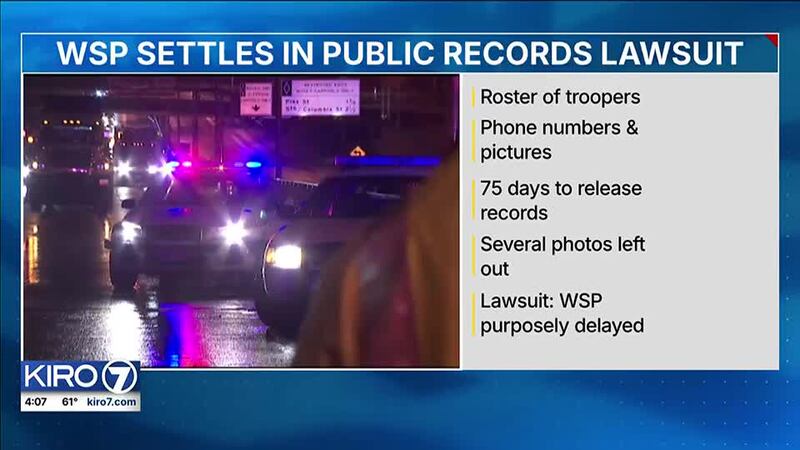Olympia, Wash. — After reaching a massive settlement agreement, Wenatchee-area DUI Defense Attorney John Brangwin agreed to dismiss his public records lawsuit against the Washington State Patrol (WSP).
On Oct. 3, Brangwin dropped his allegation of wrongdoing against the law enforcement agency after it agreed to pay him $58,433.67, according to a press release from his law office Woods, Brangwin & Bratton, PLLC.
Brangwin accused the agency of wrongdoing because he submitted a public records request in December of 2022, asking for specific employee information and he says the agency took nearly three months to release the records. The request sought a roster of Washington troopers who work for North Central Patrol, their cellphone numbers, and individual photos. As the record release lagged, Brangwin complained multiple times about the delay.
After 75 days, the agency responded and omitted several photos, which Brangwin argued should’ve been released. Brangwin then threatened the agency with legal action, citing Washington’s Public Records Act. Brangwin offered $1,500 to the agency to settle the matter at that time, but WSP refused.
On March 29, 2023, Brangwin filed a lawsuit in Chelan County Superior Court against WSP. During the case, Jeremy Burke representing Brangwin, found out that WSP did very little to fulfill the public records request for about 70 days. Burke also learned that the head of WSP’s Public Records Unit allegedly disparaged Brangwin in emails and warned her staff that he was a lawyer. Brangwin and Burke also found out that WSP sent the same information he requested to other prosecutor’s offices within hours but stalled for days before they provided it to him.
Following these findings, two different assistant attorneys general representing WSP including Assistant AG Justin Kato, motioned the court to dismiss the case. But, Chelan County Superior Court Judge Travis Brandt denied the motion and set trial for Dec. 4.
The office cited the Washington Public Records Act, which states that “the people of this state do not yield their sovereignty to the agencies that serve them. The people, in delegating authority, do not give their public servants the right to decide what is good for people to know and what is not good for them to know. The people insist on remaining informed so that they may maintain control over the instruments that they have created.”
When government agencies violate the act, they could face a daily penalty of up to $100 a day per document asked for in a public records request. In addition, the agency could be held liable for attorney fees and costs.
Burke and Brangwin accumulated more than $97,000 in legal fees and nearly $3,500 in costs, which would have been more if the case went to trial.
©2024 Cox Media Group








